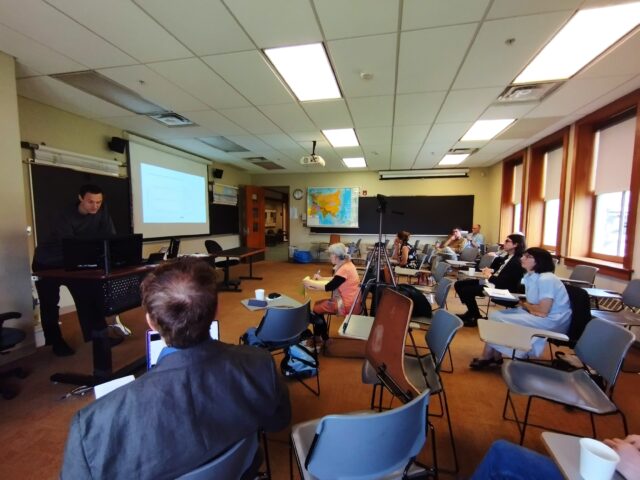The Sixth Annual Conference of the International Association for Japanese Philosophy (IAJP) was held in Hobart and William Smith Colleges, August 16-17, 2023. The theme of the conference was “One, Many, and Other, Prospects for a Post-Pandemic, Post-Cold-War Polycentric World.” The keynote speakers are Prof. Thomas Kasulis (Ohio State University), Prof. Shūdō Brian Schroeder (Rochester Institute of Technology) and Professor Michiko Yusa (Western Washington University). The title of my presentation is “Fūdo as Terruño.” In English, Watsuji’s concept of fūdo is translated as “climate.” Augustin Berque argues that fūdo cannot be confused with kikō, and insists fūdo should be translated with milieu, a French word meaning environment, state of life or social surroundings. Berque’s interpretation is innovative and insightful, but I would suggest translating fūdo as terroir, another French word meaning the set of special characteristics of a certain land including natural and cultural factors. In my opinion, terroir has a better connection to the earth-soil-land than milieu. Also, I am in debt with my Mexican colleagues who point out that the Spanish word for terroir is terruño, which does not only mean “land” but also “homeland.” In the “homeland” of the indigenous people of the mountains, terruño is not merely an ontological concept, but a place with important natural and cultural meanings. Milieu could be one way to translate fūdo philosophically, but terruño is another way for us to understand fūdo from a folkloric view. Without doubt, climate change is one of the most critical contemporary issues we are facing nowadays. In other words, we are not only facing the crisis of “climate change,” but also the crisis of “fūdo change.” It is our task to understand the vulnerability of fūdo in different parts of the world, and to work together to keep our fūdo alive.

Report by Cheung Ching-yuen (Graduate School of Arts and Sciences)








